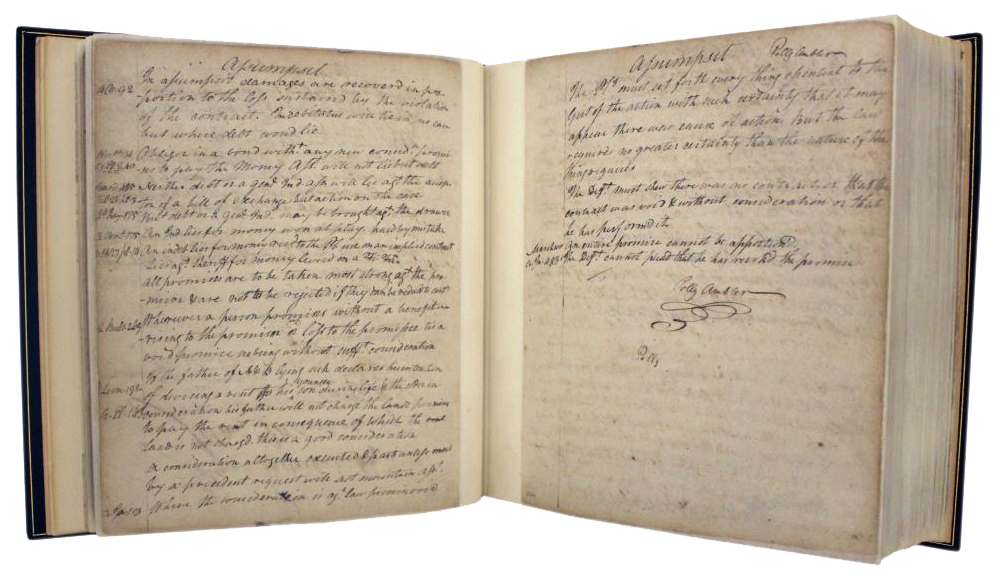In 1775, 19-year-old John Marshall joined his father as a Culpeper Minuteman; the following year, he transitioned to a militia within George Washington’s Continental Army. He rose from the rank of lieutenant to captain in the 11th Virginia Continental Regiment and was appointed deputy judge advocate general. Marshall participated in several battles, including Brandywine and the Battle of Monmouth, and survived the winter at Valley Forge. Marshall left the military in 1781 and entered the Virginia House of Delegates. Throughout his career, he would reflect on how his time in the military shaped his belief in the importance of a robust central government. It was the major theme of a speech he delivered at the 1788 Virginia Ratifying Convention: “What are the objects of the national Government? To protect the United States, and to promote the general welfare. Protection in time of war is one its principal objects. Until mankind shall cease to have ambition and avarice, wars will arise. The prosperity and happiness of the people depend on the performance of these great and important duties of the General Government. Can these duties be performed by one State? Can one State protect us, and promote our happiness? The Honorable Gentleman who has gone before me (Governor Randolph) has shewn that Virginia cannot do these things. How then can they be done? By the national Government only.”
Patriot
Image

1793 Account Book. On military leave in 1780, Marshall studied law with George Wythe and received a law license. He used this law commonplace book to document the legal, historical, and philosophical reading that helped shape his view. He also occasionally wrote Polly’s name in the margins. (Courtesy of College of William & Mary)
